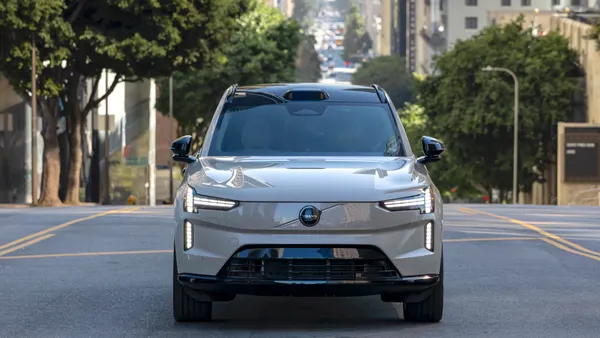Editor's note: This story is part of the WardsAuto digital archive, which may include content that was first published in print, or in different web layouts.
Hyundai acts on its pledge in November to introduce 17 all-new energy-efficient vehicles by 2020 by releasing a rendering and some details of the Ioniq, a new vehicle that will be available in battery-electric, hybrid-electric and plug-in hybrid-electric versions.
A spokesman tells WardsAuto the new vehicle will have its sales launch in Korea sometime after the January 2016 public debut there, followed by showings at the Geneva auto show March 3-13 and the New York auto show March 25-April 3.
Hyundai Vice Chairman Yang Woong-Chul, who heads Hyundai’s Namyang R&D center, says in a statement: “Hyundai Motor has a heritage of building innovative, fuel-efficient vehicles, so we are proud to advance our eco-friendly car lineup with the introduction of Ioniq.
“Our vision for future mobility focuses on choice, with a variety of powertrain options to suit customers’ varied lifestyles, without compromising on design or driving enjoyment. Ioniq is the fruit of our efforts to become the leader in the global green-car market.”
The Ioniq (eye-ah-nik) has a specially developed platform derived from that supporting the Elantra subcompact. It is shared by the Kia Niro but will support vehicles of many power types, sources tell WardsAuto.
The all-electric version is powered by a lithium-ion battery, but capacity and other technical details of the powertrains are not disclosed. Neither have performance details including range and fuel economy in the drivetrain variants. No price range has been released.
Roots in 2012 Concept
The name and exterior styling are derivative of the i-Oniq, a hybrid-electric concept shown at the 2012 Geneva auto show.
That vehicle was powered by an 80-kw (107-hp) electric motor with a gasoline-powered 1.0L 3-cyl. range-extending engine. It was said by Hyundai to have an all-electric range of 75 miles (120 km) and combined range of 435 miles (700 km).
Sources say the hybrid variant of the new offering will use the 1.6L 4-cyl. now available in the Hyundai i30.
Following next month’s launch in Korea the aerodynamic 5-door hatchback will go on sale later in 2016. Hyundai passes on questions of availability in the U.S. and Canada.
It is of note that Hyundai registered the Ioniq name with the Korea Intellectual Properties Office in June 2015, followed by trademark registrations in Europe, the U.K., Canada and the World Intellectual Property Organization in July.
Hyundai likely will put the Ioniq on markets globally as it challenges the Toyota Prius and other comers as it pushes into the energy-efficient alternate-powertrain sectors of those markets.
Hyundai has pledged to boost average fuel economy of all its vehicles 20% by 2020, when it plans worldwide sales of 22 models overall, including 12 hybrids, six PHEVs, two EVs and two fuel-cell vehicles.










